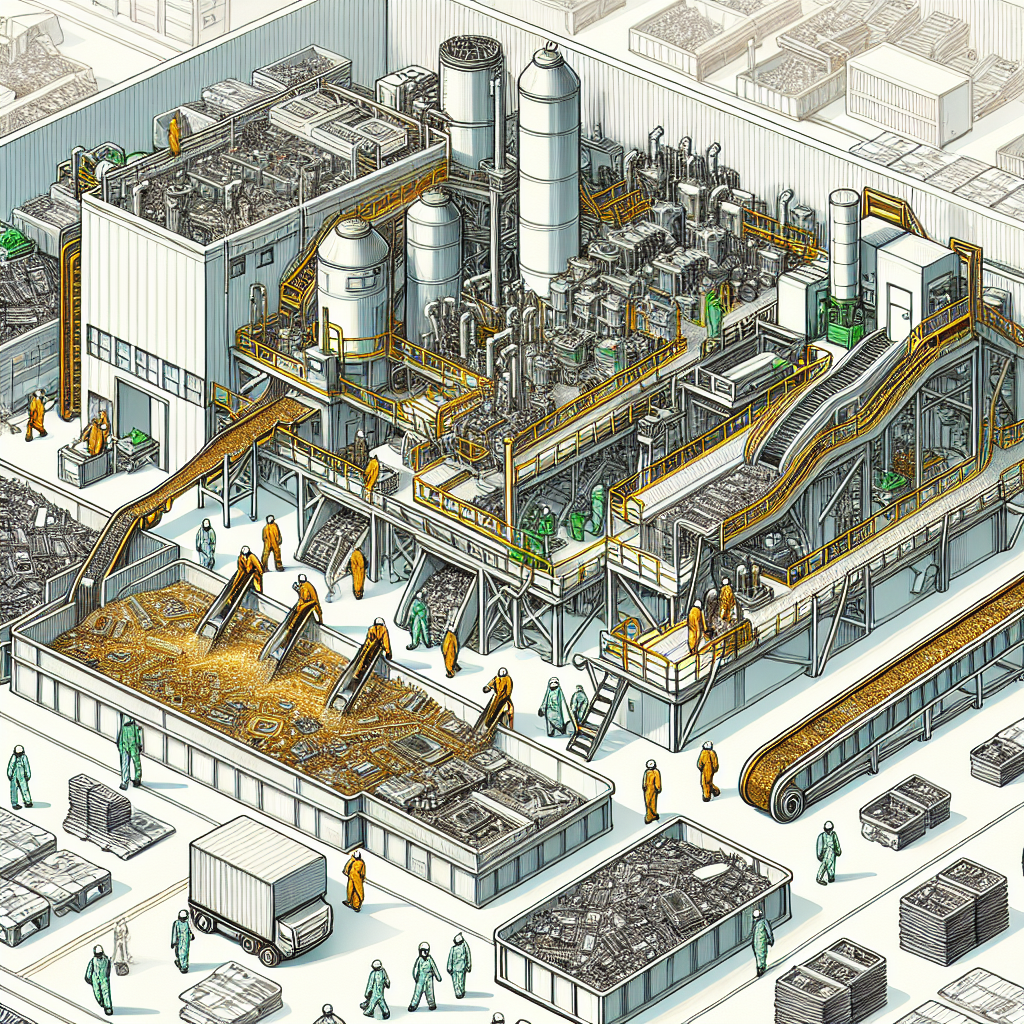Brazil is currently experiencing an intense heatwave, with red alerts being issued for nearly 3,000 towns and cities. The city of Rio de Janeiro recorded a temperature of 42.5C on Sunday, which is a record for November. The high humidity has made it feel even hotter, reaching a staggering 58.5C. This extreme heat has affected over a hundred million people and is expected to continue until at least Friday. Officials attribute this heatwave to the El Niño phenomenon and climate change.
The city of São Paulo has also been heavily impacted by the heat, with average temperatures reaching 37.3C on Tuesday. The National Institute of Meteorology has issued red alerts for a large part of the country, indicating that temperatures may be 5C above average for an extended period of time, posing a serious health risk. The heatwave has led to a surge in energy consumption as people try to stay cool.
This heatwave is occurring more than a month before the start of summer in the southern hemisphere. Inmet research has shown that the average temperature in Brazil has been above the historical average from July to October. Climate change is causing extreme weather events to become more frequent and intense worldwide, and heatwaves are expected to continue increasing in length and intensity as long as greenhouse gas emissions continue.
In addition to climate change, Brazil is currently experiencing an El Niño weather phase, which typically leads to higher global temperatures. The heatwave is expected to persist until at least Friday, affecting cities like São Paulo. The extreme heat has made it difficult for people to work and sleep, with some describing the conditions as unbearable. It is crucial for individuals and governments to take action to mitigate the effects of climate change and protect vulnerable populations from the dangers of extreme heat.
Original news source: Brazil: Health warnings as country gripped by ‘unbearable’ heatwave (BBC)
Listen
Slow
Normal
Fast
Group or Classroom Activities
Warm-up Activities:
– News Summary
Instructions: Students will be asked to read the article individually and then summarize the main points in one to two minutes in front of the class. This will not only test their comprehension but also their ability to condense information and present it clearly.
– Opinion Poll
Instructions: Create a list of statements about climate change, heatwaves, and potential solutions. Students will walk around the classroom and poll their classmates, asking if they agree or disagree with each statement. Afterward, discuss the results in class and how opinions compare to the perspectives mentioned in the article.
– Word Association
Instructions: Write the term “heatwave” on the board. Students are to call out words or phrases that they associate with this term based on the article, such as “El Niño,” “climate change,” “red alert,” “energy consumption,” etc. This will activate their prior knowledge and help with vocabulary reinforcement.
– Future Predictions
Instructions: After discussing the article, students will write down their predictions about the future impact of climate change on global weather patterns and what actions they think will be taken. They will then share their predictions in small groups and discuss the likelihood and potential impact of each prediction.
– Think-Pair-Share
Instructions: Pose a question related to the article, such as “What measures can individuals and governments take to combat the effects of extreme heatwaves?” Students first think about their answer individually, then pair up with a partner to discuss their thoughts, and finally, share their findings with the larger group. This will encourage critical thinking and collaborative learning.
Comprehension Questions:
1. What temperature did Rio de Janeiro record on Sunday, setting a record for November?
2. How has the high humidity in Brazil affected the perceived temperatures during the heatwave?
3. What is the expected duration of the heatwave in Brazil, according to the article?
4. What two factors are officials attributing the current heatwave in Brazil to?
5. What has been the impact of the heatwave on energy consumption in Brazil?
6. When does summer officially start in the southern hemisphere, and how does this relate to the timing of the current heatwave?
7. What has Inmet research indicated about the average temperature in Brazil from July to October?
8. What are the two suggested courses of action for individuals and governments to deal with the effects of climate change, as mentioned in the article?
Go to answers ⇩
Listen and Fill in the Gaps:
Brazil is currently experiencing an intense heatwave, with red alerts being issued for nearly 3,000 (1)______ and cities. The city of Rio de Janeiro recorded a (2)______ of 42.5C on (3)______, which is a record for November. The high humidity has made it feel even hotter, reaching a staggering 58.5C. This extreme heat has affected over a hundred million (4)______ and is expected to continue until at least Friday. Officials attribute this heatwave to the El Niño phenomenon and climate change.
The city of São (5)______ has also been heavily impacted by the heat, with average temperatures reaching 37.3C on (6)______. The National Institute of Meteorology has (7)______ red alerts for a large part of the country, indicating that temperatures may be 5C above average for an extended (8)______ of time, posing a serious health risk. The heatwave has led to a surge in energy consumption as people try to stay cool.
This heatwave is occurring more than a month before the start of summer in the southern hemisphere. Inmet research has (9)______ that the average temperature in Brazil has been above the historical average from July to October. Climate change is causing extreme weather events to become more frequent and intense worldwide, and heatwaves are (10)______ to continue increasing in length and intensity as long as greenhouse gas emissions continue.
In (11)______ to (12)______ change, Brazil is currently experiencing an El Niño weather phase, which typically leads to higher global temperatures. The heatwave is expected to (13)______ until at least Friday, affecting cities like São Paulo. The extreme heat has made it (14)______ for people to work and sleep, with some (15)______ the (16)______ as unbearable. It is crucial for individuals and governments to take action to mitigate the effects of climate change and protect vulnerable populations from the dangers of extreme heat.
Go to answers ⇩
Discussion Questions:
Students can ask a partner these questions, or discuss them as a group.
1. What is your personal definition of a heatwave, and have you ever experienced one?
2. How would you feel if your hometown recorded temperatures above 40C?
3. Do you think that the city infrastructure where you live is prepared for extreme heat events? Why or why not?
4. What measures do you take to stay cool during a heatwave?
5. Have you or someone you know ever suffered from heat-related illnesses, and how did you cope with it?
6. Do you believe that climate change is affecting the weather patterns in your country? Can you give examples?
7. How do you think governments should address the health risks associated with extreme heat?
8. What is your opinion on the role of greenhouse gas emissions in climate change?
9. Do you think that the occurrence of events like El Niño is well understood by the public, and why is awareness important?
10. How do you feel about the surge in energy consumption during heatwaves, considering its environmental impact?
11. What are some ways individuals can reduce their carbon footprint to help mitigate climate change?
12. Do you think that extreme weather events will become the new normal, and how should societies adapt?
13. In your opinion, what are the most vulnerable populations to extreme heat, and how can they be protected?
14. How would you describe the relationship between human activity and climate phenomena like El Niño?
15. Do you like the idea of living in a place with a hot climate year-round? Why or why not?
Individual Activities
Vocabulary Meanings:
Match each word to its meaning.
Words:
1. heatwave
2. red alerts
3. temperature
4. humidity
5. El Niño
6. climate change
7. energy consumption
8. greenhouse gas emissions
Meanings:
(a) The degree of hotness or coldness of a body or environment
(b) The amount of moisture in the air
(c) A weather phenomenon characterized by warming of the ocean surface temperatures in the central and eastern Pacific
(d) Warnings issued to indicate extreme weather conditions
(e) Gases released into the atmosphere that trap heat and contribute to global warming
(f) A prolonged period of excessively hot weather
(g) Long-term alteration of temperature and typical weather patterns in a place
(h) The amount of energy used by individuals or organizations
Go to answers ⇩
Multiple Choice Questions:
1. What is the cause of the heatwave in Brazil?
(a) Unusually high humidity levels
(b) The El Niño phenomenon and climate change
(c) The start of summer in the southern hemisphere
(d) Increased energy consumption
2. How many towns and cities have issued red alerts due to the heatwave?
(a) Over 100
(b) Only Rio de Janeiro
(c) Less than 50
(d) Nearly 3,000
3. What was the record temperature recorded in Rio de Janeiro?
(a) 42.5C
(b) 58.5C
(c) 37.3C
(d) 5C above average
4. How long is the heatwave expected to continue?
(a) Until at least Friday
(b) Until the start of summer
(c) Only for a few more days
(d) Indefinitely
5. What has been the impact of the heatwave on energy consumption?
(a) A decrease in energy consumption
(b) A surge in energy consumption
(c) No change in energy consumption
(d) Energy consumption has not been affected
6. What is the main cause of extreme weather events worldwide?
(a) El Niño
(b) Increased energy consumption
(c) Unusually high humidity levels
(d) Climate change
7. What is the average temperature in Brazil from July to October?
(a) Below the historical average
(b) The same as the historical average
(c) Above the historical average
(d) Not mentioned in the article
8. How are the conditions described by some people in Brazil?
(a) Comfortable
(b) Mild
(c) Unbearable
(d) Pleasant
Go to answers ⇩
True or False Questions:
1. The National Institute of Meteorology has issued red alerts for a large part of the country, indicating that temperatures may be 5C above average for an extended period of time, posing a serious health risk.
2. The high humidity has made it feel even hotter, reaching a staggering 58.5C.
3. Brazil is not currently experiencing an intense heatwave, with red alerts being issued for nearly 3,000 towns and cities.
4. This extreme heat has affected over a hundred million people and is expected to continue until at least Friday.
5. The city of Rio de Janeiro recorded a temperature of 42.5C on Sunday, which is not a record for November.
6. Climate change is causing extreme weather events to become more frequent and intense worldwide, and heatwaves are expected to continue increasing in length and intensity as long as greenhouse gas emissions continue.
7. The city of São Paulo has not been heavily impacted by the heat, with average temperatures reaching 37.3C on Tuesday.
8. Officials do not attribute this heatwave to the El Niño phenomenon and climate change.
Go to answers ⇩
Write a Summary:
Write a summary of this news article in two sentences.
Check your writing now with the best free AI for English writing!
Writing Questions:
Answer the following questions. Write as much as you can for each answer.
Check your answers with our free English writing assistant!
1. What temperature did Rio de Janeiro record on Sunday, and why is this significant?
2. How is the current heatwave in Brazil linked to the El Niño phenomenon?
3. What are the consequences of the heatwave on energy consumption in Brazil?
4. According to Inmet research, how has the average temperature in Brazil from July to October compared to the historical average?
5. What actions are suggested as crucial for individuals and governments in response to the dangers of extreme heat?
Answers
Comprehension Question Answers:
1. What temperature did Rio de Janeiro record on Sunday, setting a record for November?
Rio de Janeiro recorded a temperature of 42.5C on Sunday.
2. How has the high humidity in Brazil affected the perceived temperatures during the heatwave?
The high humidity has made it feel even hotter, reaching a staggering 58.5C.
3. What is the expected duration of the heatwave in Brazil, according to the article?
The heatwave is expected to continue until at least Friday.
4. What two factors are officials attributing the current heatwave in Brazil to?
Officials attribute the heatwave to the El Niño phenomenon and climate change.
5. What has been the impact of the heatwave on energy consumption in Brazil?
The heatwave has led to a surge in energy consumption as people try to stay cool.
6. When does summer officially start in the southern hemisphere, and how does this relate to the timing of the current heatwave?
Summer officially starts more than a month after the occurrence of the heatwave, which is happening before the start of summer in the southern hemisphere.
7. What has Inmet research indicated about the average temperature in Brazil from July to October?
Inmet research has shown that the average temperature in Brazil has been above the historical average from July to October.
8. What are the two suggested courses of action for individuals and governments to deal with the effects of climate change, as mentioned in the article?
The two suggested courses of action are to take action to mitigate the effects of climate change and to protect vulnerable populations from the dangers of extreme heat.
Go back to questions ⇧
Listen and Fill in the Gaps Answers:
(1) towns
(2) temperature
(3) Sunday
(4) people
(5) Paulo
(6) Tuesday
(7) issued
(8) period
(9) shown
(10) expected
(11) addition
(12) climate
(13) persist
(14) difficult
(15) describing
(16) conditions
Go back to questions ⇧
Vocabulary Meanings Answers:
1. heatwave
Answer: (f) A prolonged period of excessively hot weather
2. red alerts
Answer: (d) Warnings issued to indicate extreme weather conditions
3. temperature
Answer: (a) The degree of hotness or coldness of a body or environment
4. humidity
Answer: (b) The amount of moisture in the air
5. El Niño
Answer: (c) A weather phenomenon characterized by warming of the ocean surface temperatures in the central and eastern Pacific
6. climate change
Answer: (g) Long-term alteration of temperature and typical weather patterns in a place
7. energy consumption
Answer: (h) The amount of energy used by individuals or organizations
8. greenhouse gas emissions
Answer: (e) Gases released into the atmosphere that trap heat and contribute to global warming
Go back to questions ⇧
Multiple Choice Answers:
1. What is the cause of the heatwave in Brazil?
Answer: (b) The El Niño phenomenon and climate change
2. How many towns and cities have issued red alerts due to the heatwave?
Answer: (d) Nearly 3,000
3. What was the record temperature recorded in Rio de Janeiro?
Answer: (a) 42.5C
4. How long is the heatwave expected to continue?
Answer: (a) Until at least Friday
5. What has been the impact of the heatwave on energy consumption?
Answer: (b) A surge in energy consumption
6. What is the main cause of extreme weather events worldwide?
Answer: (d) Climate change
7. What is the average temperature in Brazil from July to October?
Answer: (c) Above the historical average
8. How are the conditions described by some people in Brazil?
Answer: (c) Unbearable
Go back to questions ⇧
True or False Answers:
1. The National Institute of Meteorology has issued red alerts for a large part of the country, indicating that temperatures may be 5C above average for an extended period of time, posing a serious health risk. (Answer: True)
2. The high humidity has made it feel even hotter, reaching a staggering 58.5C. (Answer: True)
3. Brazil is not currently experiencing an intense heatwave, with red alerts being issued for nearly 3,000 towns and cities. (Answer: False)
4. This extreme heat has affected over a hundred million people and is expected to continue until at least Friday. (Answer: True)
5. The city of Rio de Janeiro recorded a temperature of 42.5C on Sunday, which is not a record for November. (Answer: False)
6. Climate change is causing extreme weather events to become more frequent and intense worldwide, and heatwaves are expected to continue increasing in length and intensity as long as greenhouse gas emissions continue. (Answer: True)
7. The city of São Paulo has not been heavily impacted by the heat, with average temperatures reaching 37.3C on Tuesday. (Answer: False)
8. Officials do not attribute this heatwave to the El Niño phenomenon and climate change. (Answer: False)
Go back to questions ⇧















